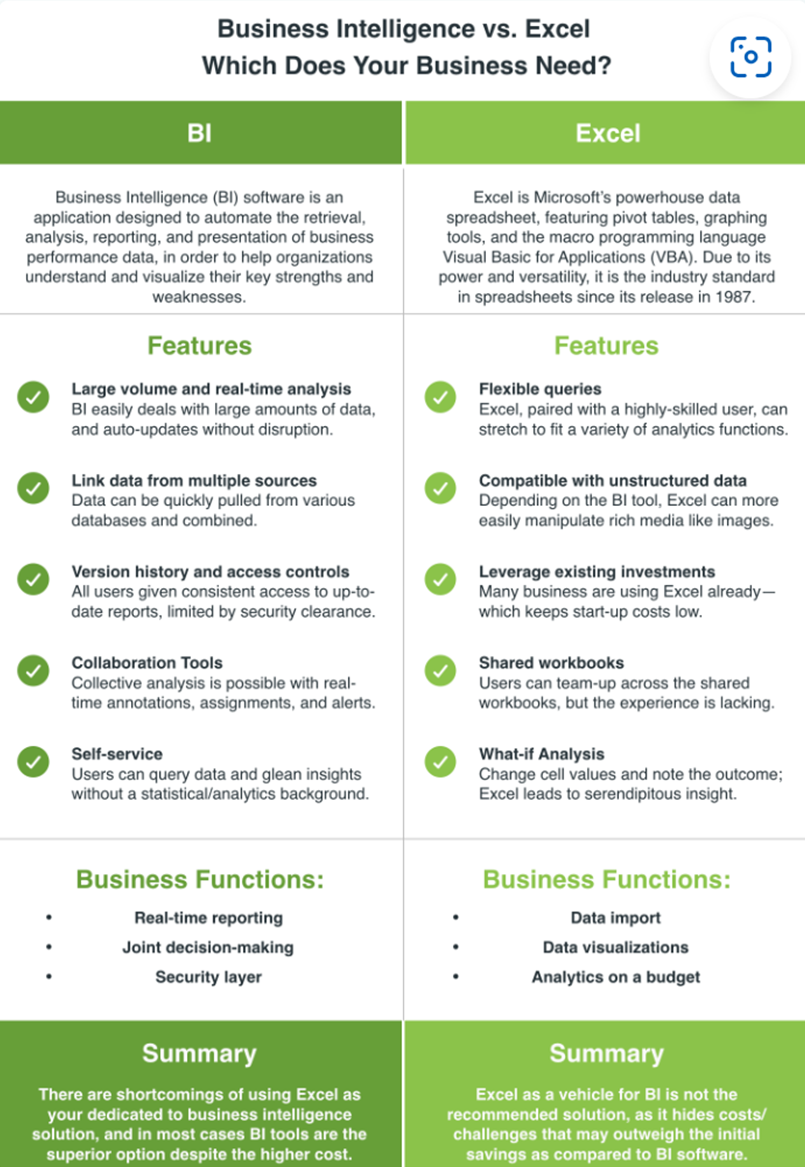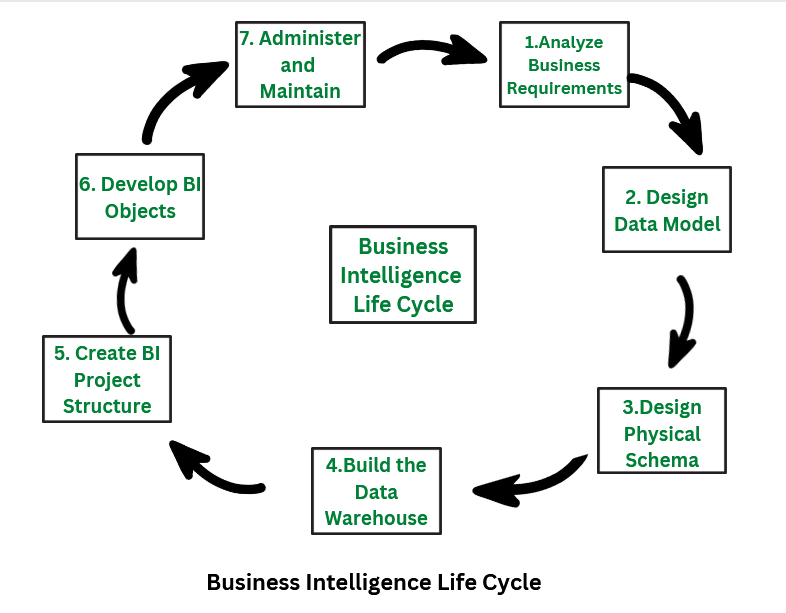Aggregating data across multiple Enterprise Business Systems is an even greater challenge, and our ERP Business Intelligence team excels at working across multiple business systems. Financial data is the most obvious use case for BI in conjunction with ERP data. Companies track typical balance sheet financial metrics like revenue, profit, and equity. Another common metric is cash flow with measures like Days Sales Outstanding (DSO) or Accounts Payable (AP) turnover. BI empowers businesses to double-click on the details to optimize processes to proactively improve their cash position and strengthen their financial performance. Examples of processes to examine and enhance include Accounts Receivable (AR), AP, and Inventory Management. Companies can visualize data and trends using dashboards to find examples of best practices to repeat and inefficiencies that can be eliminated.
Our ERP Business Intelligence team combined with our deep expertise in Federal compliance advisory services can partner to improve a company’s risk profile. BI delivers information and reports to monitor controls, particularly when managing by exception. This allows leaders to focus on driving the business forward while being alerted to any issues and potential risks rather than spending time reviewing data or transactions manually. BI provides a mechanism to pull data the exact data requested by an auditor, Federal regulations, or contracts requirements (ICS, CDRLs, etc.). Capital Edge’s knowledge of compliance and customer base of Government Contractors positions us to have a clear understanding of the reporting and business intelligence needs of our clients, including feeds to government systems, project cost reporting, earned value reporting, funds or budget management, and time and labor reporting. Along with the contractual and regulatory requirements of federal award recipients, we recognize that running a federal grants or government contracting entity requires different metrics and dashboards than running a commercial company. We can provide those unique dashboards, reports, and drill-down data tailored to the highly regulated environment.






